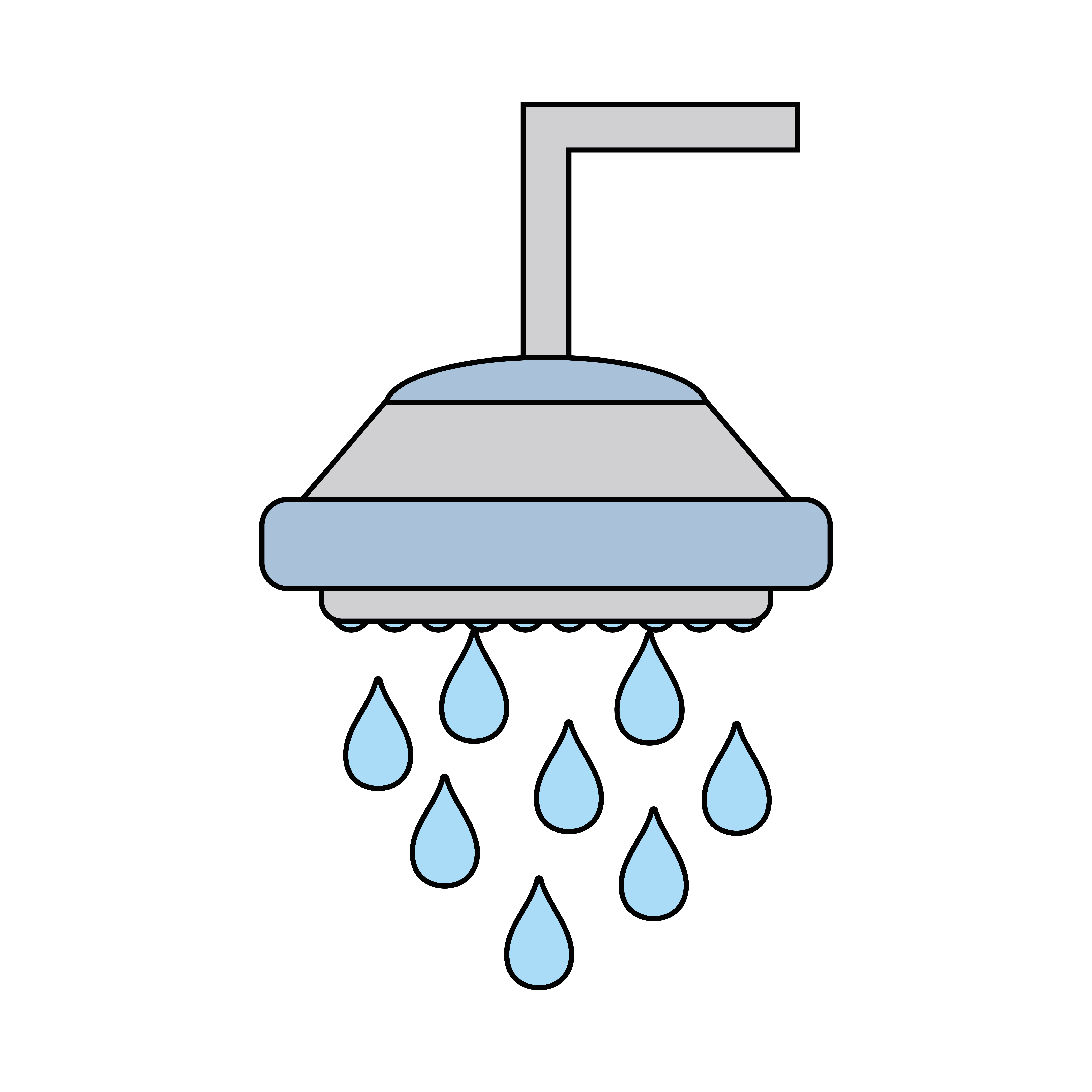Current Section: model
Lesson The purity of a Muslim woman
The legislation obligates the Muslim woman to learn about the rulings she needs to know regarding her own purity, such as menstruation, non-menstrual bleeding, and postpartum bleeding.
Things that a woman should know and act upon include:
Ghusl (bathing ritual) from Impurity
'Janabah' linguistically refers to a far distance. In the legislation, the 'Junub" refers to the one who ejaculates semen or has sexual intercourse, which applies to the man and the woman. A person is called junub because it is forbidden to approach the places of prayer until he is purified. Ghusl after ritual impurity is obligatory, according to Allah's statement: (And if you are in a state of ritual impurity, purify yourself.) [Al-Ma'idah:6]
Ghusl after the end of a Menstrual Cycle
When menstrual bleeding stops, a Muslim woman must have a ghusl (ritual bath). Allah says: (They ask you ˹O Prophet˺ about menstruation. Say, “Beware of its harm! So keep away, and do not have intercourse with your wives during their monthly cycles until they are purified. When they purify themselves, you may approach them as specified by Allah. Indeed Allah loves those who constantly turn to Him in repentance and those who purify themselves.)[Al-Baqara:222] So He said: (so when they purify themselves), i.e., by washing.
Menstruation and Non-Menstrual Bleeding
Menstruation: the blood that comes from a woman's womb without childbirth or illness. As for istihaadah, it is the flow of blood from the female's uterus at times other than usual due to disease or a disorder.
The duration of menstruation differs among women, and there is no limit to the least amount of time, according to most correct sayings of scholars. However, the majority view is that the maximum is fifteen days, and what exceeds that is istihaadah blood and not menstrual blood. Therefore, menstruation is usually six or seven days in women's cases.
Ghusl at the End of Postpartum Bleeding
The scholars are unanimously agreed that a postpartum woman must perform ghusl at the end of her postpartum period.
Definition of Postpartum Bleeding
It is the blood released by the uterus during childbirth and two or three days before it, a sign of which is pain during and after it until the completion of forty days. The period of postpartum bleeding is a maximum of forty days, .and there is no minimum limit.
Matters Arising from Menstruation and Childbirth
Prohibition of Intercourse
It is forbidden for a man to have intercourse with his menstruating wife because Allah says: (They ask you, ˹O Prophet˺ about menstruation. Say, “Beware of its harm! So keep away, and do not have intercourse with your wives during their monthly cycles until they are purified. When they purify themselves, then you may approach them in the manner specified by Allah. Indeed Allah loves those who constantly turn to Him in repentance and those who purify themselves.)[Al-Baqara: 222] Likewise, it is forbidden to have intercourse with women who have postpartum bleeding, according to the consensus of scholars.
Prohibition of Divorce
That is due to the statement of Allah: (O Prophet! ˹Instruct the believers: When you intend to divorce women, then divorce them with concern for their waiting period.) [Talaq:1] This means do not divorce her while she is menstruating or having postpartum bleeding, or while she was pure and sexual relations were had, and it is not yet clear if she is pregnant.
Prohibition of Prayer and Fasting
Also due to the statement of the Prophet, ﷺ who said: «Isn't it true that a woman does not pray and does not fast on menstruating? And that is the defect (a loss) in her religion.» (Al-Bukhari, 1951)
Prohibition of Circumambulation (tawaf)
The Messenger of Allah ﷺ said to Aisha (may Allah be pleased with her) when she menstruated during Hajj: «That is what Allah has written for the daughters of Adam, so do all that the pilgrim does except the circumambulation of the House until you become pure.» (Al-Bukhari, 305, Muslim, 1211)
The Prohibition of Touching the Quran
And that complies with the saying of Allah: (No one touches it except the purified} [Al-Waqi’ah: 79], And it is permissible for her to recite the Qur’an from her memory according to the correct saying, in contrast to the one who is junub (sexually impure state), because he does not recite until he takes a bath. And if a menstruating or postpartum woman needs to review a verse or teach others, and the like, then it is permissible for her to touch the Qur’an with a barrier, like gloves, etc.
The Prohibition of Staying in the Mosque
Due to the statement of the Prophet ﷺ: ‘A'isha reported Allah’s messenger as saying: «I do not make the mosque lawful for a menstruating woman or one who is seminally defiled.» (Abu Dawud, 232) As for passing through it or entering it out of necessity, it is permissible. On the authority of Aisha (may Allah be pleased with her), she said: The Messenger of Allah ﷺ said to me: «Hand me the khumra [i.e., the prayer rug] from the mosque.» So I said: I am menstruating, and he said: «Your menstruation is not in your hand.» (Muslim, 298).
Matters that Necessitated by Menstruation
Puberty
By reaching puberty, a person becomes responsible for fulfilling all the obligations of an adult Muslim, and menstruation is one of the surest signs of puberty for a girl.
Waiting Period for the Divorced Woman
The waiting period for a divorced woman expires with three menstrual cycles for the one who is still menstruating because Allah says: (Divorced women must wait for three monthly cycles.) [Al-Baqarah:228]
What indicates the purity of women from menstruation
A White Discharge
A white thread-like thing that comes out of a woman's vagina during the last days of her menstruation, and is a sign of her purity.
Cessation of Blood and Dryness
It is when a woman inserts a piece of cloth into her vagina, and it comes out uncontaminated with blood or a brownish or yellowish-colored discharge.
Ghusl has two obligations: the intention and wetting all the hair and the rest of the skin with water. Water must reach the roots of the hair to get to the skin beneath it, whether the hair is thin or thick.

A Description of a Woman's Ghusl from Menstruation and the State of Sexual Impurity
Aisha (may Allah be pleased with her) reported by Asmaa asked the Prophet ﷺ about ghusl after menstruation. He said: «Everyone amongst you should use water (mixed with the leaves of) the lote tree and cleanse herself well, and then pour water on her head and rub it vigorously till it reaches the roots of the hair. Then she should pour water on it. Afterward, she should take a piece of cotton smeared with musk and cleanse herself.» Asma' said: "How should she cleanse herself with the help of that? Upon this, he (the Messenger of Allah) observed: «Praise be to Allah, she should cleanse herself.» 'A'isha said in a subdued tone that she should apply it to the trace of blood. She (Asma) then further asked about bathing after sexual intercourse. He (the Holy Prophet) said: «She should take water and cleanse herself well or complete the ablution and then (pour water) on her head and rub it till it reaches the roots of the hair (of her) head and then pour water on her.» 'A'isha said: "How good are the women of Ansar (helpers) that their shyness does not prevent them from learning the religion." (Al-Bukhari, 314, Muslim, 332)
Any barrier that prevents water from reaching any part of the body spoils the ablution and makes it invalid, such as the woman applying nail polish that prevents water from reaching the nail or the presence of any insulating material underneath.
Yellowish and Brownish Discharge
Some secretions that come out of a woman’s vagina - before or after menstruation, if it comes as part of the menstruation, then it is part of it, and prayer is not allowed for her and all the things that are prohibited because of menstruation. If, however, the discharge is not part of the menstruation, then it has no impact. As shown by the narration of Umm Attia, (may Allah be pleased with her), who said: “We used to not regard the brownish or yellowish discharge after menses as anything” (Al-Bukhari, 326, Abu Dawud, 307, and the wording belongs to him).




